Adelaide University Internship - Aaron Xuefeng Li

Welcome Aaron!
Aaron Xuefeng Li joined our SAcommunity Data Analytics Team for his University of Adelaide SET (Sciences, Engineering and Technology) Internship for his Masters of Data Science Trimester 3, 2024: 3 September 2024 - 22 November 2024.
He completed 259 hours of his internship onsite with SAcommunity at the Connecting Up Office, Infoxchange for 3 days (22.5 hours) a week for ~14 weeks working onsite and ~30 hours remotely. He returned in March 18 and 25 and April 1 & 4 2025 contributing 17 hours to the program this year.
Total Hours 276 This Year 17 Joined 3 September 2024 Last Check-in 4 April 2024
Personal Biography
Aaron is currently in his second year of a Master of Data Science program at the University of Adelaide. Before that, he obtained his Bachelor's degree in Commerce and Finance from the University of Queensland.
Throughout his years at Uni, Aaron explored many positions through internships. He has worked in roles like outbound sales and advisory analyst, enjoying both.
To him, the most exciting aspect of his experiences is the process itself: researching, analyzing, experimenting, and getting validated.
He is persuing for a full-time job from a wide spectrum, ranging from outbound sales & digital marketer to business analyst & data enginner roles, as long as it aligns with his passion for infinite progress.
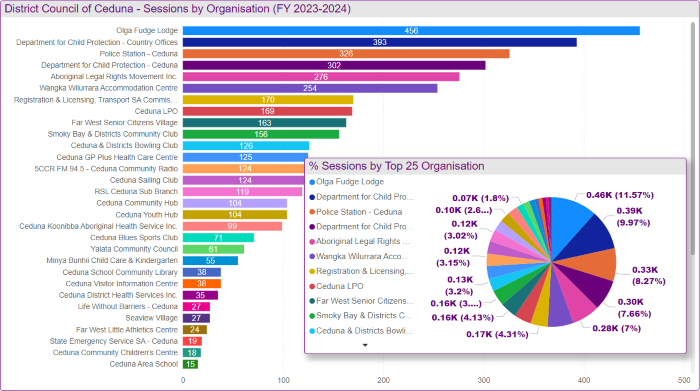
.png)
SAcommunity Project
District Council FY 2021-2022, 2022-2023, 2023-2024
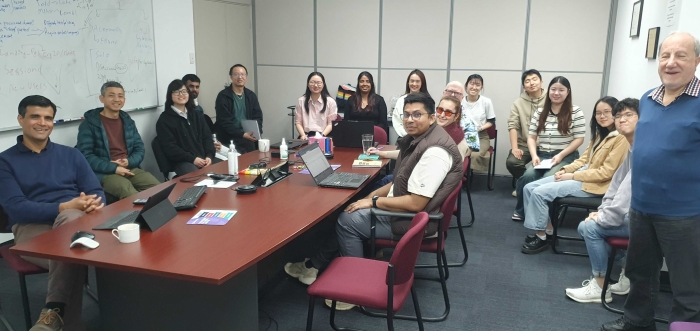
Connecting Up Monthly Staff Meeting 10 September 2024 with Volunteers and Interns
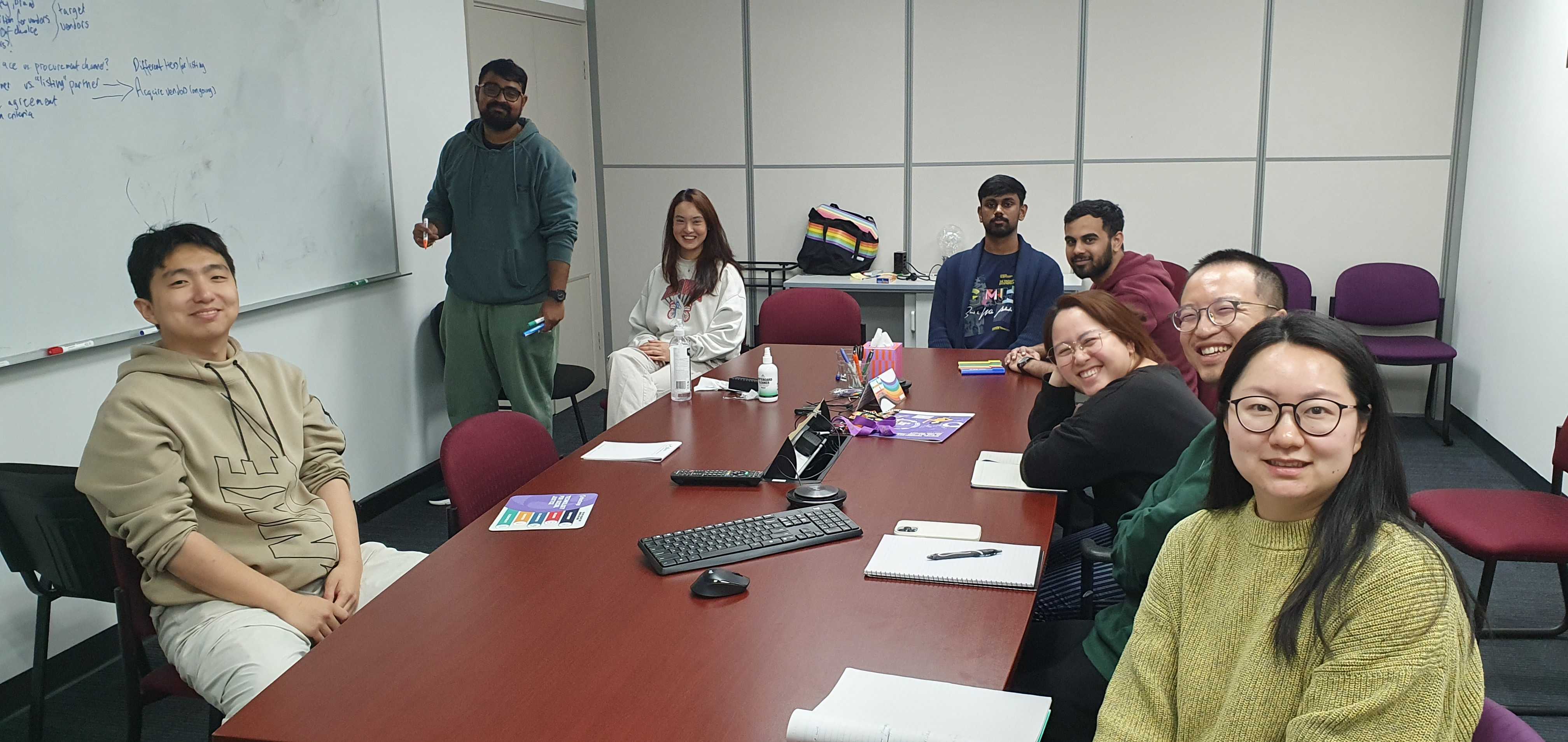
Meeting to solve the data inconsistency of current data pipeline between Google Analytic 4 and SACommunity Portal
My second day started with a team-wide update on the recurring issues we faced yesterday while working with data extracted from Google Analytics. It turned out that almost everyone was experiencing similar challenges—primarily related to inaccurate data exports. For instance, while reviewing the dataset for my assigned council, Murray Bridge Council, I noticed that data entries from other councils had mistakenly been included. The filters for organization ID and name hadn’t worked correctly during the export, leaving us to manually verify every entry for accuracy, which, as you can imagine, is an incredibly tedious and time-consuming task.
Our volunteer, Anubhav, quickly identified the gravity of the problem and escalated it to our manager. This triggered a meeting where the team gathered to discuss the issue in detail and brainstorm potential solutions. After a solid hour of deliberation, we agreed on a plan of action: each team member would take on specific tasks to find a collaborative solution to the filtering errors. Despite our best efforts, we realized that we would still need to continue with the manual checks, verifying that each organization was accurately tagged under the correct council group on SA Community and matched accordingly in the exported Excel sheets from Google Analytics.
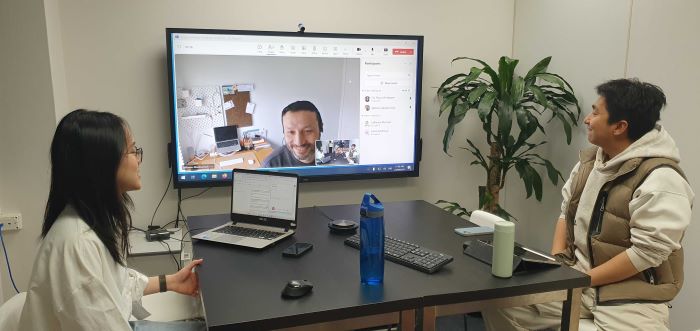
Mentor Meeting 24 September 2024
v
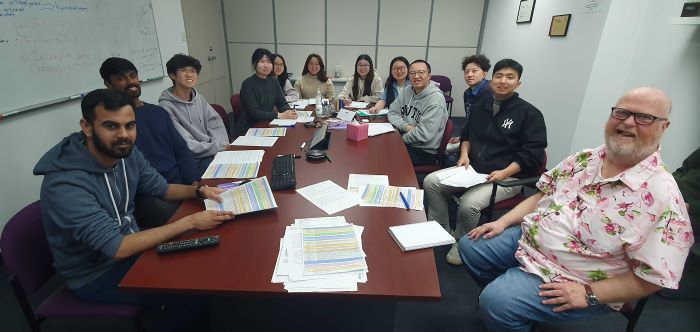
Training and Development: Mastering Telephone Techniques
Lately, I've been diving into telephone techniques as part of my overall growth in communication skills. After getting comfortable with email etiquette, this feels like the natural next step. For me, it’s all about supporting the Data Analytics Team as we work on things like understanding the directory, refining data collection methods, and keeping our datasets updated and clean.
But it doesn’t stop there. One of the biggest parts of this training is learning how to introduce and present our data reports to council stakeholders over the phone. It’s one thing to have great data, but being able to communicate that clearly and professionally is a whole new challenge.
What I really appreciate is that we get plenty of practice through several telephone technique sessions. It reminds me of doing elevator pitches back in school—practice really does make perfect. The more I put in, the more confident I feel.
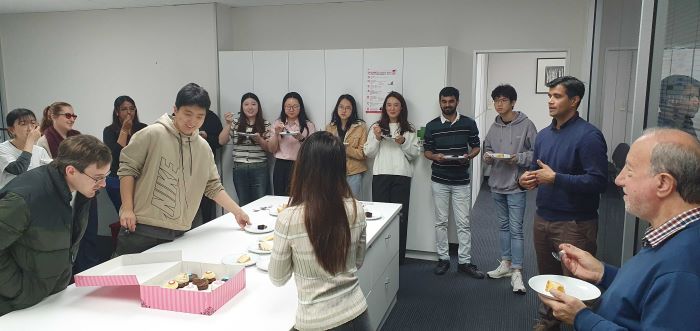
Infoxchange Cake and Connect Day
In the lead-up to R U OK Day, we took the opportunity to connect with each other over some cake and meaningful conversations. It was a reminder to check in on those around us, ensuring that everyone is doing okay, both mentally and emotionally.
We enjoyed a relaxed atmosphere, asking one another how we were feeling, and sharing ideas about healthy habits we can incorporate into our daily lives to support our well-being. It was a simple but impactful way to foster connection and remind ourselves of the importance of staying in touch with each other’s well-being.
Also I have been doing weekly self-learning webinar since the start of my Intern
Week 1: Enhancing NFP Productivity with Microsoft’s Generative AI
The Generative AI for Nonprofits webinar was an eye-opener into the potential of advanced AI tools, especially Microsoft Copilot powered by Azure OpenAI, to drive efficiency in nonprofit work. It introduced practical strategies for using AI to simplify tasks such as drafting documents, generating summaries, conducting research, and solving complex issues. The potential of these tools to streamline workflows and support more informed decision-making in nonprofit organizations is substantial.
A key takeaway was the importance of integrating AI responsibly within daily operations, with a strong focus on transparency, fairness, and ethical considerations. These principles ensure that AI solutions not only enhance productivity but also align with organizational values and stakeholder expectations. Additionally, the session underscored AI’s capacity to improve data management and communication by distilling complex information into accessible insights, which facilitates clearer, more effective communication with diverse stakeholders.
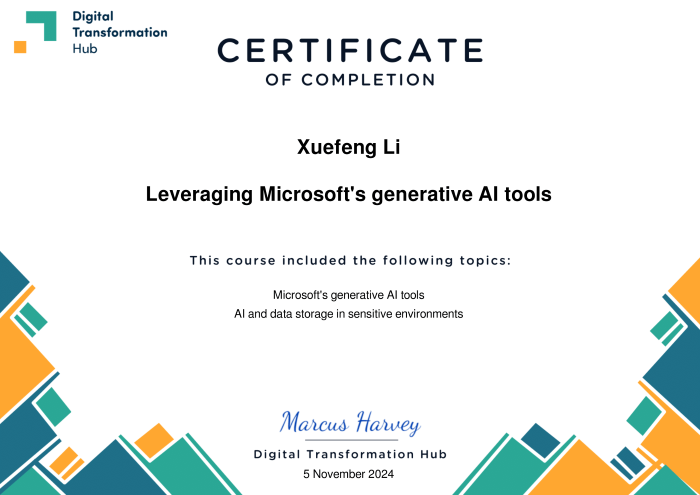
Week 2: Building Custom AI Assistants for Nonprofits
The Build Your Copilot webinar introduced Microsoft’s Copilot Studio, a versatile platform that empowers organizations to create custom AI copilots tailored to their unique needs. The session covered the end-to-end process of building and extending Microsoft Copilot experiences, using large language models to add customized capabilities. For nonprofits, this has significant implications, demonstrating how AI can be embedded in routine tasks across IT services, HR, and client support, ultimately automating workflows and boosting productivity.
One of the highlights was the emphasis on responsible AI development, emphasizing privacy, security, and inclusivity—essential considerations in nonprofit work where sensitivity to data and inclusiveness are paramount. This aligns closely with my studies in IT and AI, reinforcing the importance of balancing advanced functionalities with ethical considerations. These insights not only support my academic journey but also prepare me for future roles in AI-driven innovation, especially in community-focused sectors.

Week 3: Strategies for Securing Stakeholder Buy-In for IT Initiatives
Gaining Buy-In: Strategies for IT Leadership to Influence Key Stakeholders in Organizational Projects, focused on strategies for building trust and fostering collaboration during digital transformation efforts. A major takeaway was the value of crafting a persuasive narrative that resonates with stakeholders by clearly defining both the problem at hand and the tangible benefits of the solution. Understanding each stakeholder’s level of influence and adapting engagement approaches accordingly can drive meaningful commitment and project success.
These strategies are directly applicable to the nonprofit sector, where building trust and promoting collaboration are crucial for implementing data-driven initiatives effectively. Aligning stakeholders’ expectations with project goals ensures that all parties feel involved and invested in the success of new initiatives, laying a strong foundation for sustainable impact.
Week 4: Utilizing Data, Reporting, and Business Intelligence to Drive Service Impact
In the Data, Reporting, Business Intelligence, and Outcomes webinar, I explored how nonprofits can harness digital technologies and data-driven strategies to enhance their services in the evolving post-COVID landscape. The session emphasized the value of business intelligence tools in measuring service outcomes, tracking key performance indicators (KPIs), and boosting the impact of nonprofit activities. These tools provide a structured approach for organizations to evaluate their work more effectively, meeting expectations while also refining service delivery to align more closely with community needs.
This data-centric perspective is especially relevant for creating measurable, impactful results. By applying these strategies, I aim to integrate data-driven assessments into my work, enabling more accurate reporting on service outcomes and ultimately enhancing the support provided to the communities we serve.
Week 5: Integrating Relationship Fundraising into Core CRM Systems
The How to Ensure Relationship Fundraising is Included in Your Core CRM Requirements webinar underscored the importance of making relationship fundraising an integral part of CRM systems. Unlike general fundraising activities, relationship fundraising involves high-value, personalized engagements, making it essential for CRM systems to offer robust support for managing these relationships effectively.
The session detailed functional requirements for areas like major gifts, bequests, trusts, and corporate partnerships, highlighting the need for features such as prospect research, pipeline management, and stewardship tools. These capabilities help nonprofits nurture one-on-one relationships with high-impact donors, ensuring that these connections are cultivated over time. Implementing these insights can strengthen donor engagement and foster long-term support by integrating relationship-focused tools directly into CRM strategies, making it easier for organizations to prioritize and sustain these valuable connections.
Week 6: Strategies for Preventing Data Disasters
The Preventing a Data Disaster webinar shed light on crucial strategies to protect organizations from data breaches and cyber threats, covering risks such as ransomware, insider threats, and data exfiltration. The session emphasized the need for vigilant data protection, especially for sensitive information like financial records and personal details, while balancing security measures with workflow efficiency.
A significant takeaway was the importance of identifying critical data assets and implementing protective measures such as encryption, mobile device management, and content filtering. For someone studying IT with a focus on AI, these insights are invaluable—not only for securing data but also for appreciating the role of robust security practices in tech development. This knowledge will be essential as I work on future projects, ensuring that the systems I contribute to are both innovative and resilient against security risks.
Week 7: Understanding AI’s Role in Nonprofit Organizations
The AI for Nonprofits webinar provided a comprehensive overview of how artificial intelligence can help nonprofits tackle common challenges. The session covered ways AI can support customer service automation, boost operational efficiency, and offer personalized experiences for supporters. It also emphasized the importance of high-quality data and skilled personnel to implement AI solutions successfully.
A key takeaway was that AI is most effective when applied to narrow, well-defined problems and should always operate with human oversight. For someone studying AI, this reinforces the need to pair AI tools with a deep understanding of specific organizational challenges, ensuring that solutions are both practical and effective. This insight will guide my approach to AI development, ensuring that the systems I help build are both targeted and result-driven, aligning with real-world nonprofit needs.
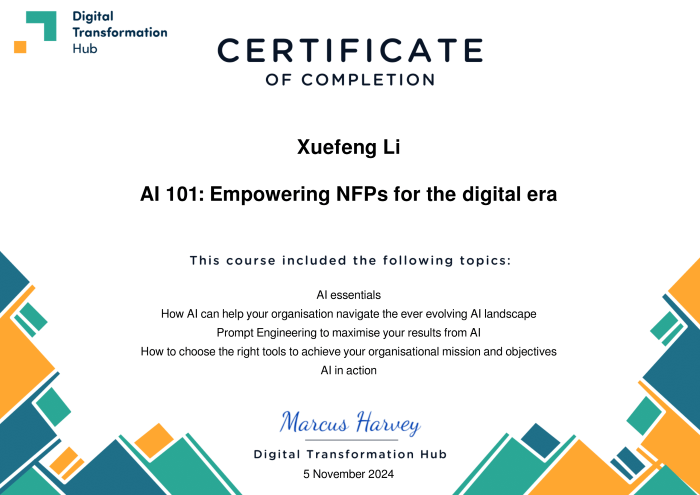
Week 8: Getting started with MS Fabric
Microsoft Fabric: Simplifying Data Analytics Integration
I recently attended a webinar led by Microsoft Cloud Solution Architects Chris Olsen and Benny Austin, where they presented Microsoft Fabric. This platform streamlines data analytics by consolidating tools into a single, pre-integrated service, making it easier for organizations to integrate and analyze data across applications.
Key Insights and Features
- Platform Overview: MS Fabric addresses the complexities of integrating multiple analytics applications, offering a unified service that simplifies modern data analysis and improves accessibility for users of all skill levels.
- SaaS Model and Security: As the first fully integrated analytics SaaS platform, MS Fabric provides robust security and governance managed by Microsoft.
- AI-Powered Copilot: With Copilot, users can extract insights and perform analyses using simple queries, making data analysis accessible without specialized skills.
Core Services
- Data Factory: Facilitates data acquisition and transformation.
- Synapse Data Engineering: Supports data transformation and predictive analytics with tools like Python.
- Relational Data Warehouse: Offers traditional data management and analytics.
- Synapse Real-Time Analytics: Enables real-time data analysis.
- Power BI: Provides data visualization tools.
- Data Activator: Monitors real-time changes and triggers automated responses.
- One Lake: Acts as a centralized data repository in an open format, eliminating duplication and streamlining data access.
Integration Highlights
One Lake integrates seamlessly with existing Azure and cloud data, avoiding the need for duplication, and Power BI’s new Direct Lake Mode optimizes data retrieval, enhancing performance.
In a demo, Benny Austin showcased how One Lake supports efficient data access and integration across tools like Power BI and Data Engineer without duplicating data.
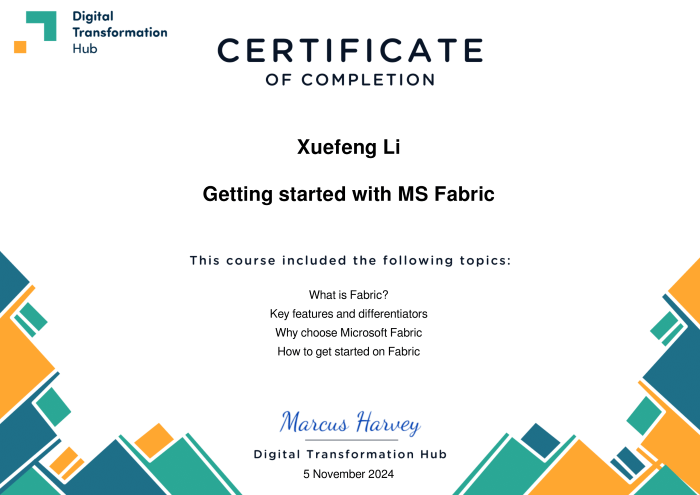
Sign up for the newsletter!
Subscribe to our monthly newsletter to receive news, information and events for the community sector in SA.




